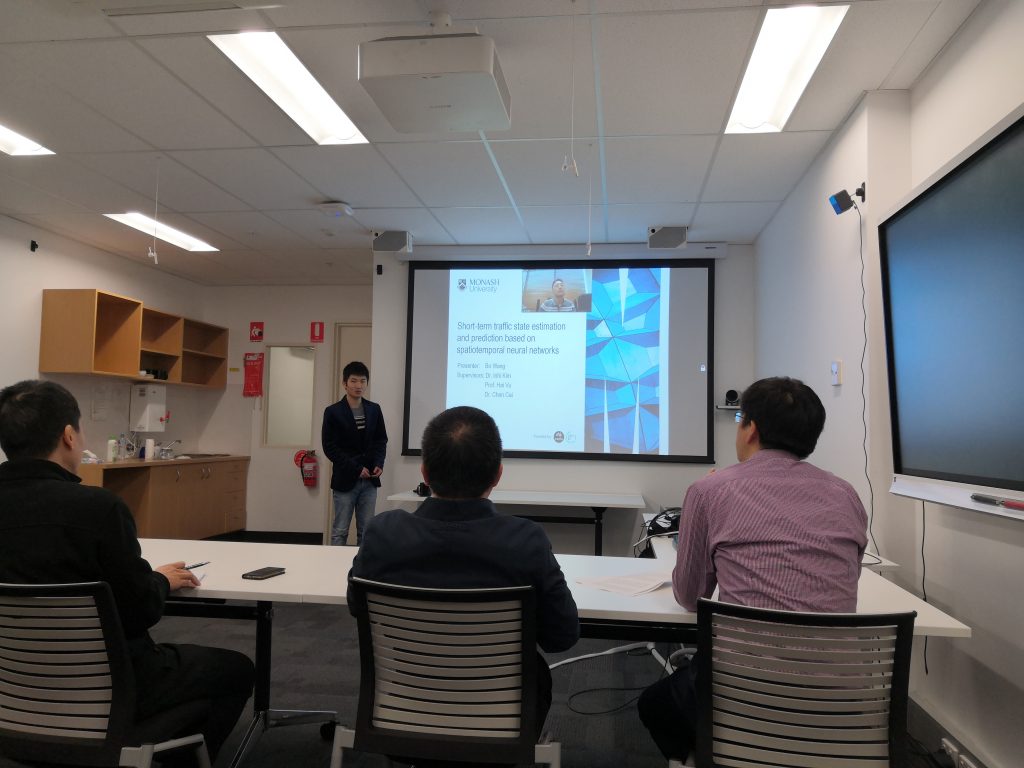Congratulation on Bo’s confirmation. All the panels and the chair impressed Bo’s research progress. The presentation was also very comprehensive. If anyone needs the seminar in a video file please contact me. Well done Bo!!

|
Title: Short-term traffic state estimation and prediction based on spatiotemporal neural networks Research Theme: Monitoring, Prediction and Protection Group: Transport Summary: Spatiotemporal neural networks (NN) models have recently achieved competitive results for short-term traffic prediction and achieved outstanding outcomes. However, two problems still require further study in terms of model performance and inner mechanism understanding: (1). The forecasting model affected by many aspects like model inputs, model structure, external factors, and optimisation function. How to design an appropriate framework for short-term traffic state prediction? (2). The existing related studies mainly use the knowledge and advantage from the neural network field, but how to incorporate transport domain knowledge with the above framework? Therefore, th e aims of this study are: (1) Presenting an overall framework from data management to model training for traffic network state estimation and prediction, which provides better forecasting results and APIs for other applications. (2) Understanding the relations of components inside the framework and improving it by integrating transport domain knowledge. The preliminary works of this study focus on the inputs and structure of NN-based model, which used the datasets of bike-sharing traffic network (New York and Suzhou cities) and highway traffic network (PeMS – Caltrans Performance Measurement System). The main outcomes are (1). The impact and inner relation of the external factors (discrete variables like weather, POI, and holidays) are studied. (2). A more accurate forecasting model based on 3D residual NN is presented, which learning the spatial-temporal features and being trained with traffic correlated input data with temporal autocorrelation. (3). The advantage of model fine-tun ing (a technique of transfer learning in the NN field) is studied with PeMS dataset, which has improved the model with limited training data. In the future work, more complex input and output data (network level) will be considered. Since traffic flow, density, and speed are essential factors in traffic flow theory; therefore, further studies will aim to integrate more domain knowledge to guide the model training. Transportation is fundamental to a thriving society. The results of short-term traffic forecasting affect both decision support of city planning and traffic management. The outcomes of this study provide a general framework of the NN-based traffic forecasting model for practice and a better understanding, which will benefit the short-term traffic forecasting related research and industry.
Bio: Bo Wang received the double M.S degree in transportation engineering from Monash University and Southeast University in 2018. He commenced his PhD at Monash University in 2018 under the supervision of Dr. Inhi Kim, Prof. Hai Vu and Dr. Chen Cai. His research interests include intelligent transport systems, deep neural networks and big data mining in transportation. |
Comments are closed.